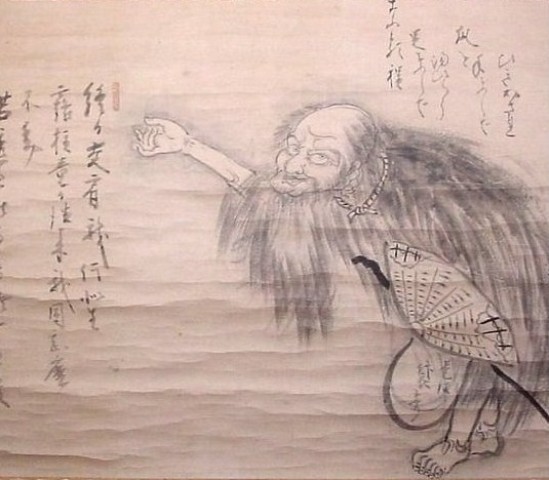
As with the classical
Chinese teachers of the Tang dynasty,
Shuho maintained that awakening was central to
Buddhist practice. In a document called Daito’s Testament, he
reminded his students, “You have come here not for food or clothing
but for religion. As long as you have a mouth, you will have food;
as long as you have a body, you will have clothes. Don’t concern
yourself with these. Be mindful throughout your waking
hours; time flies like an arrow, don’t waste it with
concern over worldly matters.”
He went on to tell his disciples
that even if they were to become the abbots
of wealthy monasteries and received the respect of
the laity and nobility, even if they were rigorous in their practice
of meditation and ritual activities, but they lacked awakening, they were
no more than members of the “tribe of evil spirits.” Conversely, if they
were poverty stricken, lived in a ramshackle hermitage, and ate
only what wild food they gathered in the forests and
yet they were awakened, then they would be
“one who meets me face to face
and repays my kindness.”
years of hunger beneath gojo bridge
